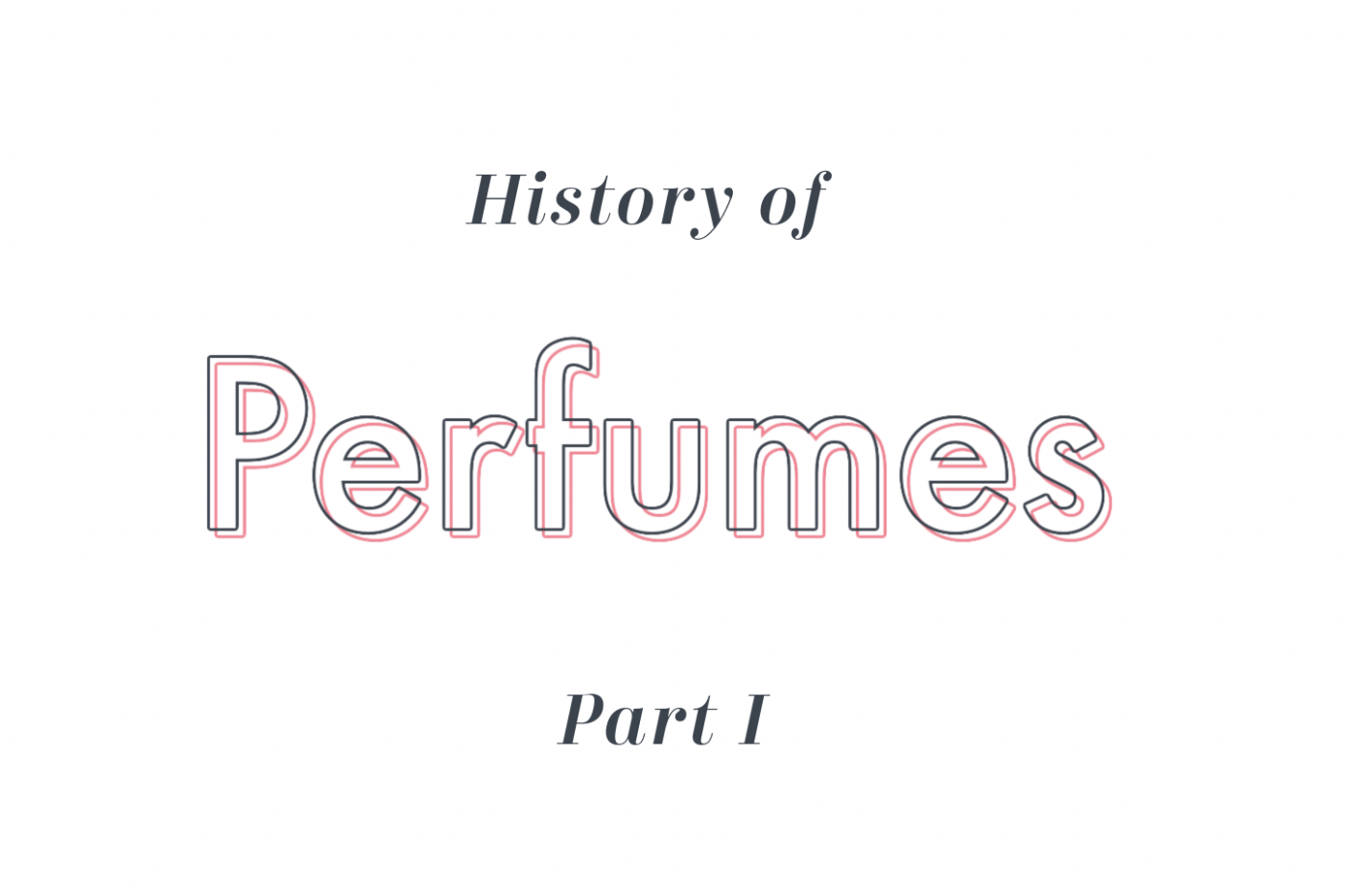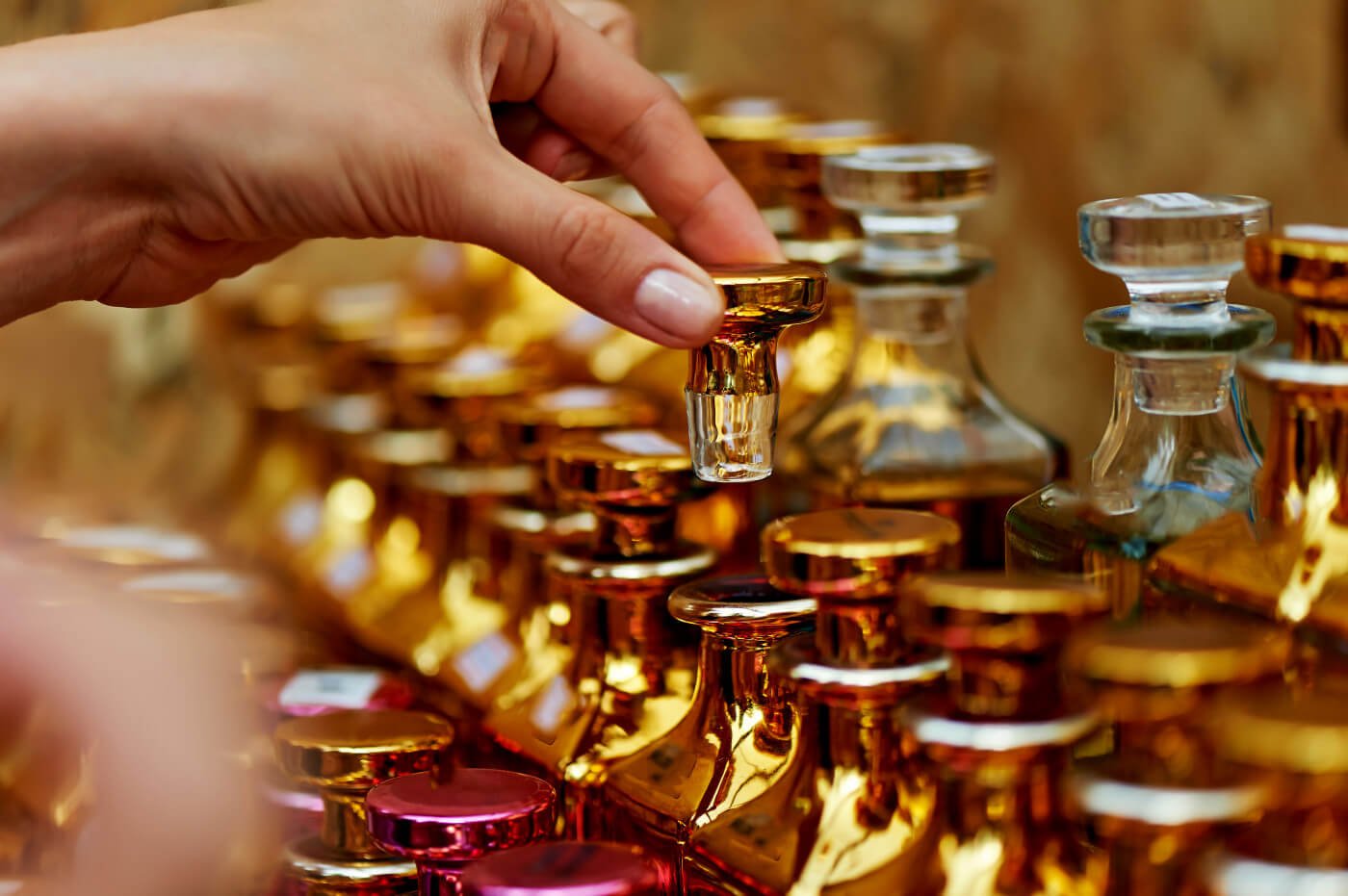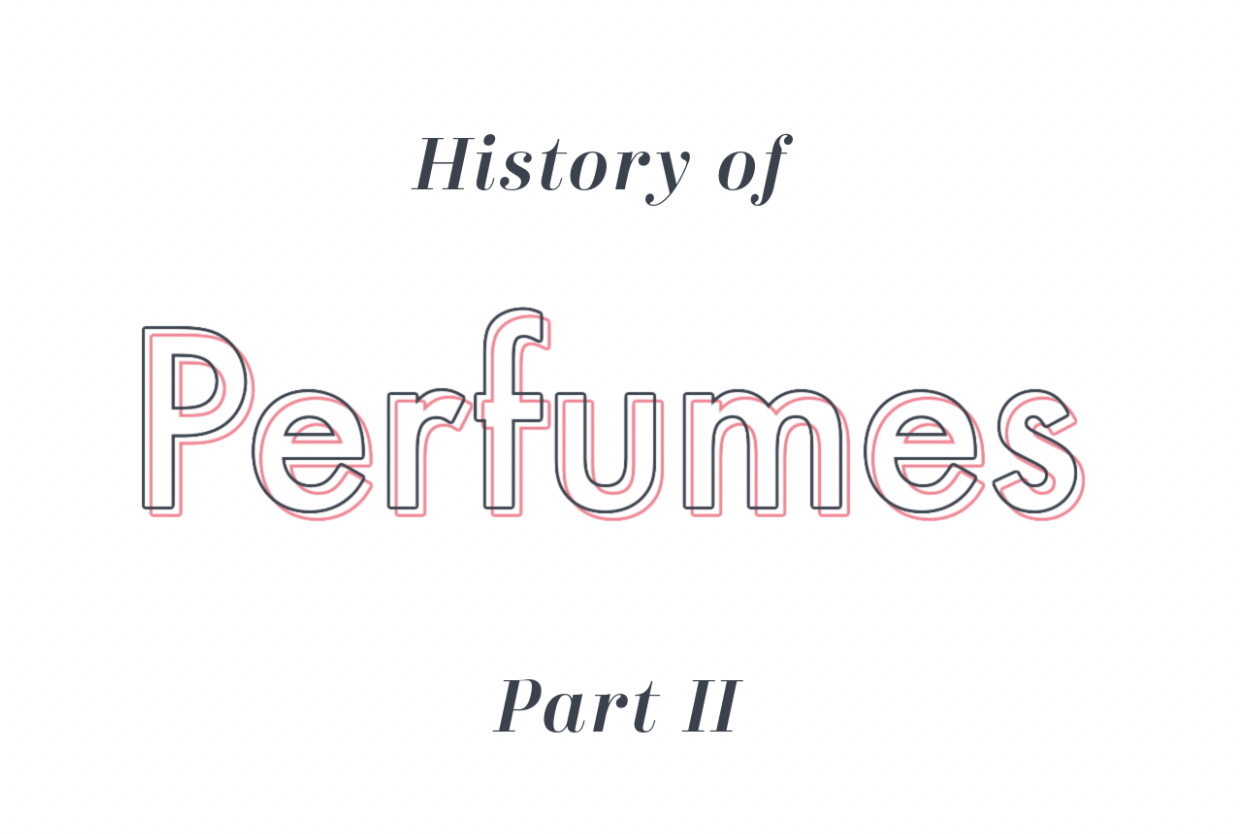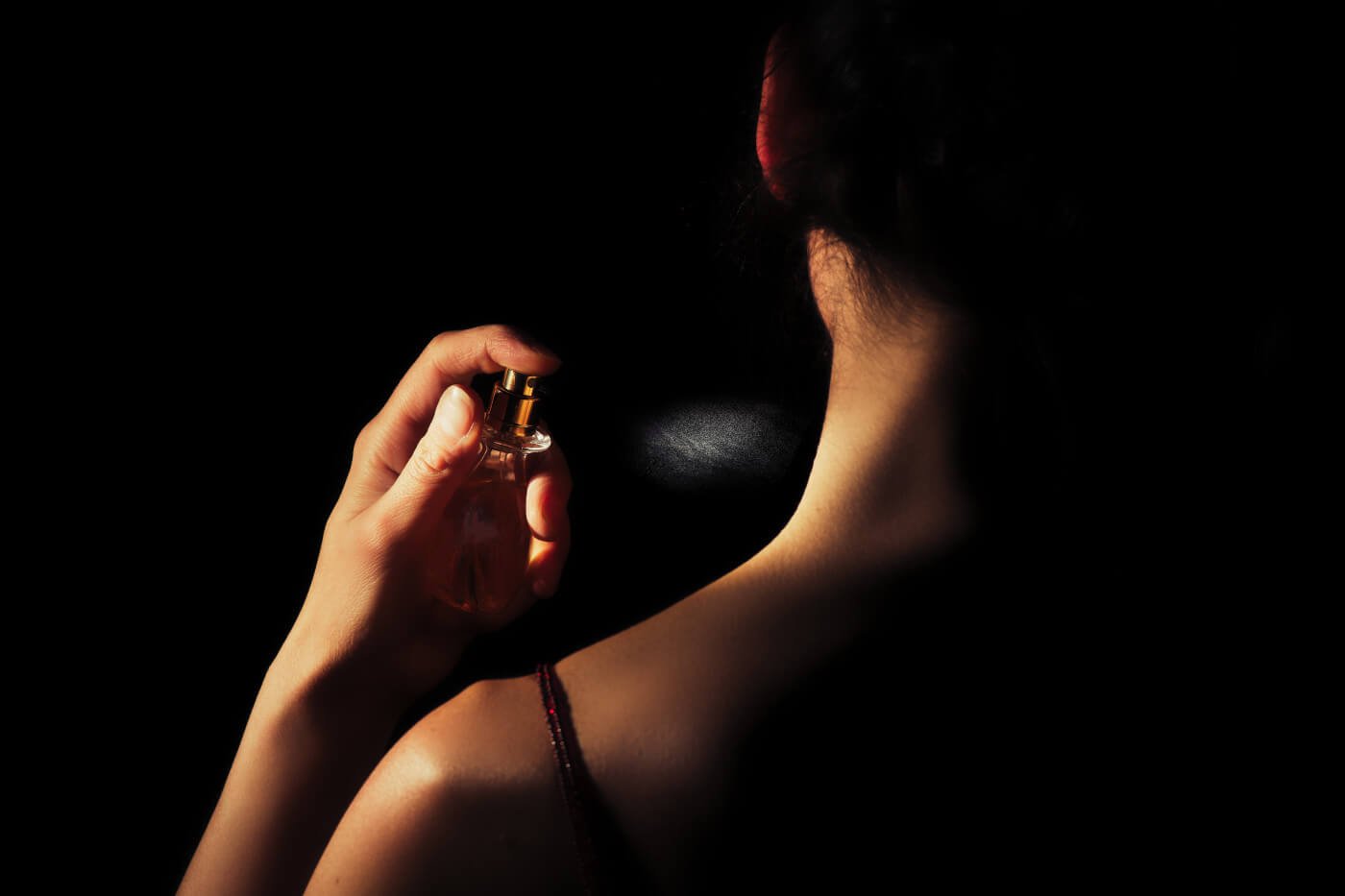There is hardly a person alive right now that has not experienced fragrances in their lives. Be it the smell of flowers in a bouquet, the smell of freshly cut grass, the smell of wet soil after rain, or the smell of leather seats in a New Car. We all have directly encountered the wonderful work our olfactory senses do which either makes us roll back our eyes in pleasure or makes us constrict our nostrils to avoid inhaling any of the unpleasant fumes.
Fragrances have been a part of our lives since time immemorial but we did not directly start with the perfume bottles we know and love today. Instead, we started by burning resins, woods & spices or by incorporating flower petals in everyday use. In fact, the word perfume is derived from the Latin word, "per fumus," meaning through smoke. It was this activity of burning scented ingredients that we started with, on our journey to reach the complex fragrances we have on our shelves today.
Throughout history, various civilizations have started using fragrances in their own manner and we know about all of them, thanks to the work of archaeologists & historians, who find tangible proofs of such events through digging & thorough research. These finds have placed the development & use of fragrances throughout the globe & at varying time periods. Let us briefly visit the ancient civilizations where they used the art of fragrances.
Indus Valley Civilization
In India, archaeologists have found a terracotta distillation apparatus along with oil containers in the excavation of Indus Valley civilization (located at the western & north-western parts of India) and are carbon-dated to 3000BCE. One of the earliest distillation of Ittar(essential oil derived from botanical sources) was mentioned in the Hindu ayurvedic texts "Charaka Samhita" & Sushruta Samhita which were written around the 6th to 2nd century BCE. Both texts discuss the manufacture of perfumes for royalties & their respective harem's counterpart.
Cyprus
In the Island of Cyprus, various excavations uncovered evidence of a humongous area where possibly a perfume manufacturing factory existed around 4000 years ago. Which goes to show that even the people of that time knew the benefits of perfume mass manufacturing.
Civilization of Mesopotamia
Evidence of the world's earliest known chemist & coincidentally world's earliest perfumer "Tapputi" were found at the sites of the ancient civilization of Mesopotamia. The evidence in the form of a stone tablet described how Tapputi held a prestigious place in the Mesopotamian government & religion and how she developed methods of scent extraction & using solvents (a practice which is the precursor to modern perfume-making techniques).
Egypt
Nearly 4000-year-old evidence was also found of Egyptian priests & their Pharaohs being entombed with sweet-smelling resins, woods & spices. Similarly, a concoction, known as 'Kyphi', of at least 16 different aromatic ingredients was burned to appease the Egyptian God Ra.
The usage of perfumes is interwoven in history & religion, like the first writings about fragrant ingredients date back to 4500BCE(found in China). Even the Bible & Quran mention recipes of perfumes and how to use the ingredients.
We only know about the above due to the hard work of historians & archaeologists. Since history is defined by the tangible & undispitable proofs we find for it, it will not be wrong to say that we humans have always used fragrances because scented flowers, resins & woods have always been present in nature.
We are now in the era, just before the birth of Christ i.e BC or BCE (Before Christ or Before Common Era) and humans have now grown in knowledge of the ingredients they used to make perfumes and the techniques they used to do so.
Let us visit some crucial places where the emphasis on the art of perfumery was way ahead at that time.
Greece
The ancient Greeks had a plethora of Gods & Goddesses, they associated a different fragrance for every deity in worshipping and carrying out rituals associated with them. They believed that something so aromatic, fragrant & beautiful must have come from the gods themselves. There were plenty of botanists at that time who wrote about fragrant ingredients and how to use them.
In the beginning, the Greeks only knew to burn ingredients to get their aroma, however soon they started to mince plants, resins & woods together and suspended them in oil to get what we know today as perfume oils.
Also, the importance of hygiene dawned upon the Grecians at this time and they started bathing and using perfume oils (cause they believed that perfumes thwarted diseases).
The most amazing anecdote of 'seduction through perfume' is also associated with this era, If history were to appoint a brand ambassador for the ancient art of Perfumes then it has to be Queen Cleopatra. Texts document the first-ever use of perfumes for seduction when Cleopatra laced the sails of her ship with fragrant ingredients to seduce Roman politician Marcus Antonius. This seduction worked so well that Marcus or Mark later became her husband.
Further, due to the conquests of Alexander the Great, trade from eastern parts of the world brought in exotic fragrant ingredients such as spices, resins, and flowers to the land of Greece. All of which led to the sudden popularity of Perfumes & perfume shops all around the kingdom.
Rome
It shall not be the first time that we learn of the influence the Greeks had on the Romans or vice-versa. The news of the usage of perfume in Greece spread like wildfire between the people of Rome.
The Romans did not invent the art of perfumery but they sure popularised the usage of it and that too to such an extent that they gave the word 'Perfume' to the world.
In short, the Romans went crazy about perfumes so much that documents show Rome used around 3000 tons of Frankincense in a year. They used ointments with aromatic ingredients for massages and the use of Rosewater became extremely popular during Roman's world-renowned public baths.
They sourced the perfume ingredients from areas of conquests and this sudden inflow of perfume ingredients saw a rapid enhancement in the ancillary activities associated with Perfumery. For example, blow molding distillation and the use of glass bottles for storing perfumes were developed during this time.
But, the Roman empire fell just as quickly as it gained prominence and the advancement in the world of perfumes took a standstill.
While Roman & Grecians were doing their thing, the world was not sitting cross-legged waiting for things to happen. In India, the temples were being built out of Sandalwood and perfumed ingredients were being used in Tantric & religious rituals.
In China & Japan, they started infusing their surroundings and everyday objects with aromatic ingredients.
The time is around the 7th century & is coincidentally the year, wildly believed to be, the year in which Islam as a religion gained prominence in the world. The religion of Islam favored the use of perfumes as Prophet Mohammedguided his followers to take baths on Friday if they are men of a certain age, to clean teeth & to use Perfumes if available.
Islamic cultures like Arabs & Persians during this time included mostly traders, who had access to the best spices & aromatic things in the world which they affectionately used to create perfumed ingredients.
This access & the prevalent religious rituals allowed & encouraged the people to delve further deep into the art of perfume making. This helped them to grow exotic ingredients in their own homeland and this started the trend of cultivating fragrant flowers & fruits like Jasmine & Citruses.
All thanks to the newfound craze for perfumes, the Arabs gave the world, two brilliant chemists by the name of Ibn Hayyan & Al Kindi. Among them, the former developed groundbreaking techniques for distillation, evaporation & filtration enabling him to capture the odors of flowers in oils while the latter helmed the establishment of the perfume industry dealing in various fragrances of the time. Al Kindi went on to create hundreds of recipes for Perfumes & medicines and later wrote an extremely comprehensive book on chemistry and perfumes, named “Book of the chemistry of Perfumes & Distillation”.
Persian Empire was not far behind in the art of perfumery. The Kings used fragrances extensively & perfumes as a whole got the common masses hooked. This popularity & demand for perfumes paved the way for chemists & botanists to find out efficient & unique ways to make fragrances. As a result, a Persian chemist during this time invented the process of extracting oils from flowers which were so innovative that we still use some derivatives of it in the 21st century. His experiment with Rose provided the world with the direction to reach the most coveted ‘Rose Water’. Up until this point in history, the perfumes were always in-your-face type, without any subtleties. However, this experiment with Rose Water provided a delicate-watery essence of the flower, in all its glory.
The developments in the art of perfumery made by the Arabs & Persians influenced “western” perfumery and the world in countless ways. Since Arabs & Persians were traders, they brought in fragrant compounds from all over the world and soon started exporting perfume oils, compounds and ingredients. The most major trade route was with the European empires with records being found in London of trading of spices & perfumes between them and Arabs.
Courtesy of this trade, Europe was soon to become the perfume capital of the world and the place where ‘modern perfumery’ as we know it would take birth. Further, the Crusaders in their attacks on Islamic regions brought back the techniques, processes, equipment & compounds to Europe. Further enhancing the overall grasp Europeans had on the art of perfume making.
We are in the 11th century now, and the Latin Church has initiated the crusades (religious wars) to claim back the holy land from Islamic Rule. There were several of these crusades directed, some of them lost & some of them won but there was almost always war loot involved and that almost always had perfume ingredients with it.
Pillaging & plundering was very common in times of war. So it was only habitual, when Crusaders invaded lands under Islamic rule (Arabs & Persians), they brought back many things, which included perfumed compounds, perfumery stills, chemistry books, handwritten accounts of botanists, and much more. The Crusaders brought new scents and the methods to create them. This gave the Europeans a huge boost in their skills & techniques they were using to create perfumes.
The Europeans during this time mastered & perfected the art invented by early civilizations. They started using Glass tubes & stills so that their compounds wouldn’t react with the material (which was Copper up until that time) of the equipment. Bathing water was scented with aromatic ingredients & so was the water they used to wash hands with. The ladies wore pomanders (a wrapped up ball of aromatic substances) in their gowns to cover bad hygiene or to woo casual onlookers.
The maritime explorations, which started in the late 12th century, saw trading of the most exotic flaura & fauna Europeans had ever seen, from far & exciting places by some of the most famous explorers till date. We are talking about the likes of Columbus, Vasco De Gama, Magellan, etc. These explorers opened several marine trading routes & brought back plenty foreign ingredients such as Vanilla from Mexico, Cinnamon from Indies, Sumatran Benzoin, Tobacco & Cocoa from Peru, etc. This influx of some of the best aroma ingredients in the world helped the Europeans further research & use them in perfume making.
Due to the strategic location of Venice (Italy), the maritime trade routes allowed Italy to flourish really well in their use & research of aromatic ingredients. This boost to the industry came to fruition when in the late 13th century chemists & perfumers in Italy created a 95% proof. scented solution which was named ‘Aqua Vita’ or Water of Life. This marked the change of using solid, oil based perfumes to liquid perfumes.
This invention of scented alcohol revolutionized the use of liquids in perfumes and paved the way for the liquid ethanol-based perfumes we use today. In fact due to this invention, the world’s first ‘modern’ perfume was created for Queen Elizabeth of Hungary in the late 14th century. Which was a mix of Lavender, Rosemary & Alcohol and was named “Queen of Hungary Water”.
Due to the emergence of Black Plague, people in the 15th century feared bathing. As they thought that water infiltrates the body, inflating it and enabling the bacteria to enter the body. This fear led to a further increase in the usage of perfumes & aromatic ingredients. Every man & woman of the time hoped to wear perfume or carry pomanders with them to mask their body stench and to mask the smell of the streets.





